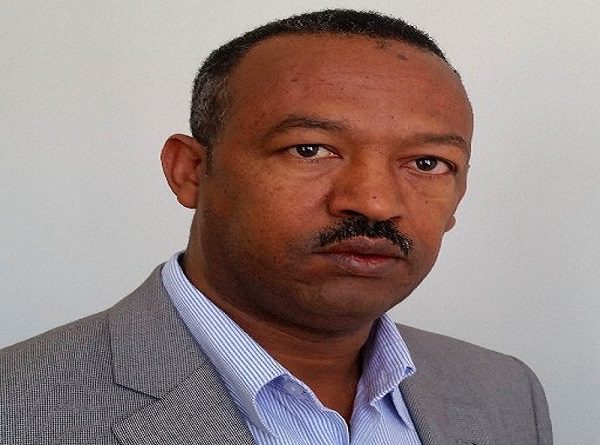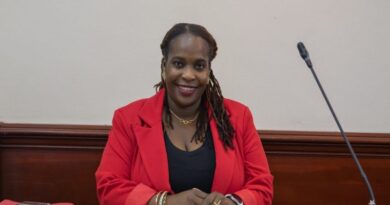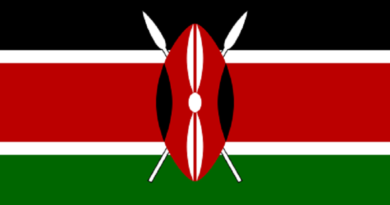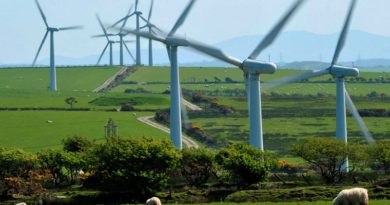COP 23: LDC group seeks support to achieve climate plans
Ahead of the forth coming twenty-third Conference of the Parties to the United Nations Framework Convention on Climate Change (COP 23), Ministers and Heads of delegation of the Least Developed Country Parties have affirmed that the global response to climate change must be fair and equitable to advance the interests and aspirations of poor and vulnerable countries and peoples.
The Ministers and Heads of delegation met in Addis-Ababa, Ethiopia, on Thursday October 5, 2017 in preparation for COP 23 to be presided over by the Government of Fiji in November 2017 Bonn, Germany.
Mr. Gebru Jember Endalew, Chair of the LDC Group, said it had been a very successful meeting, with Ministers discussing all of the key issues of the negotiations and expressing their countries’ dedication to ambitious climate action. “Today Ministers from across the world’s 47 poorest countries have demonstrated how LDCs are continuing to take the lead on ambitious climate action, pursuing sustainable, low carbon and climate resilient pathways to protect our people and our planet.”
“It is clear that LDCs face unique and unprecedented challenges in working to lift our people out of poverty while achieving sustainable development. Ministers here in Addis Ababa have identified the need for global solidarity and the support of the international community to help LDCs achieve our ambitious climate plans. Ministers have also highlighted that the global response to climate change must be fair and equitable, with countries acting in a manner that is consistent with their responsibility for climate change and capacity to respond.”
“Under the Paris Agreement the world has laid out a vision for achieving a greener, healthier and brighter future for all – the LDCs hope that the upcoming negotiations will generate finance and other support to ensure all countries of the world can make this vision a reality.”
The LDC group are fully committed to supporting Fiji, the first island nation to hold the presidency of the Conference of the Parties, to reach successful outcomes this November.
The Communiqué, issued at the end of the meeting read in part:
“We, the Ministers and Heads of Delegation of the Least Developed Country Parties to the United Nations Framework Convention on Climate Change (UNFCCC), having met in Addis-Ababa, Ethiopia, on 5 October 2017 in preparation for the 23rd Session of Conference of the Parties to the UNFCCC to be presided over by the Government of Fiji in November 2017 (COP23):
“Affirm that the global response to climate change must be fair and equitable to advance the interests and aspirations of poor and vulnerable countries and peoples;
“Note with serious concern that the adverse impacts of climate change continue to worsen, as experienced through severe droughts and unprecedented rainfalls, storms and flooding around the world this year, particularly in Asia, Africa and the Caribbean, resulting in great loss of life and tens of billions of dollars in damage to economies and infrastructure; Emphasise that scientific research increasingly attributes the occurrence of heat extremes, drought, flooding, sea level rise and other slow onset and extreme events to human-induced climate change and further emphasise that this decade and the last four years have been the hottest in recorded history as global temperatures continue to rise year-on-year.
“Note with continued concern the large gap between the level of ambition needed to reach the long-term goal of pursuing efforts to limit warming to below 1.5°C above pre-industrial levels and the current low level of ambition that is projected to result in an increase of at least 2.8°C in global temperature by 2100, even with the full implementation of current emission reduction pledges and commitments;
“Encouraged by the 170 Parties that have ratified the Paris Agreement and urge all countries that have not yet done so to ratify as soon as possible; appreciate the recent announcements by many countries of renewed political commitment to the Paris Agreement despite the challenging political context, and recognise the value of this leadership to the UNFCCC process; re-emphasise the need for higher climate ambition by all countries in a manner that is consistent with their responsibility for climate change and capacity to respond, in order to close the emissions gap to avoid further devastating climate change impacts and affirm our commitment to continue to lead on ambitious climate action in our countries; accelerating the transition to low carbon, climate resilient development to protect our citizens and sustain our economies” among others.




